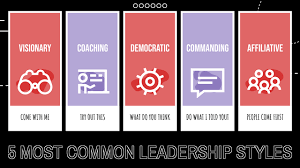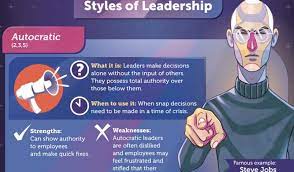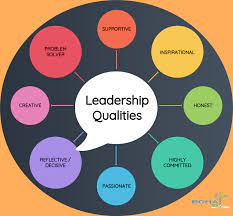The 5 Leadership Styles You Need to Know
Anyone who has ever managed a team or led an organization knows that there are a variety of leadership styles out there. But what are they, and which one is right for you? Here are five of the most common leadership styles, and how to use them to effectively lead your team or organization:
1. The autocrat- This style revolves around one leader who makes all the decisions and sets the agenda. They can be charismatic and inspiring leaders, but they need to have complete control over their team in order to be successful. This type of leader is not always the best option, as it can create infighting and chaos within the organization.
2. The delegator- This leadership style is ideal for teams who need to work together cooperatively. Instead of having one leader making all the decisions, this style relies on delegation – giving individual members of the team specific tasks to complete in order to achieve a common goal. Delegators create trust among team members by letting them know that their input is important and that their contribution will be valued. They must also be able to handle change well, as delegating authority can often lead to changes in team composition or objectives.
3. The participative leader- This style revolves around encouraging participation from all team members in order to achieve objectives. Instead of working towards a common goal alone, participative leaders strive for a collective understanding and success. They provide ample opportunity for input from team members and ensure that everyone has a voice
biblical leadership
There are five biblical leadership styles that you need to know if you want to be a successful leader. These styles are: the autocratic style, the democratic style, the laissez-faire style, the participatory style, and the situational leadership style.
The autocratic style is where one person makes all the decisions without consulting others. This can be risky, because it can lead to mistakes if not done correctly. The democratic style is where everyone has a say in decisions, and there is usually compromise involved. Laissez-faire style leadership is where leaders give their subordinates freedom to do their own thing, but with guidance and supervision. Participatory style leadership involves involving everyone in decision-making, and it’s usually considered to be more effective than other styles. Situational leadership is where leaders respond to the situation at hand rather than following a specific model.
hugh o brian youth leadership

The 5 Leadership Styles You Need to Know
Leadership styles are often misunderstood and misused in organizations. However, there are five essential leadership styles that every manager and employee should know. These styles are Autocratic, Bounded Autocracy, Consensus, Democratic Leadership, and Participative Leadership.
Autocratic Leadership: This leadership style is based on one leader making all the decisions without any input from others. This type of leadership can be effective when the leader has a clear vision and is able to enforce their will on subordinates. However, this style can be difficult to manage and can lead to conflicts and unfairness.
Bounded Autocracy: This leadership style is similar to autocratic leadership, but it also allows for some degree of collaboration and debate among team members. This type of leadership is easier to implement than autocratic leadership, but it can be less effective because it does not allow for dissent or innovation.
Consensus Leadership: This leadership style relies on everyone on the team coming together to make decisions. This type of leadership is usually effective when there is a clear mission or goal that everyone agrees on. However, consensus leadership can be difficult to implement when there are different agendas or beliefs among team members.
Democratic Leadership: This style relies on leaders being open to feedback and suggestions from their team members. Leaders should also be willing to change their plans based on feedback from their team members. Democraticleadership is often considered the most efficient type of leadership because






